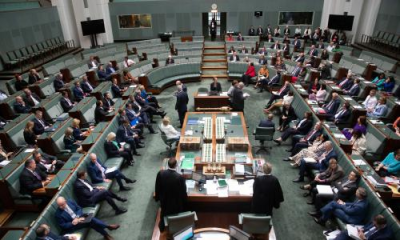The U.S. Supreme Court is set to hear arguments on Monday, November 27, 2024, in a significant case involving the U.S. Food and Drug Administration’s (FDA) authority to regulate flavored e-cigarette products.
The FDA, under the administration of outgoing President Joe Biden, is appealing a decision by the New Orleans-based 5th U.S. Circuit Court of Appeals that found the agency improperly denied applications to sell flavored vape products from two e-cigarette companies, Triton Distribution and Vapetasia.
Background on FDA Regulations
The FDA implemented a rule in 2016 under President Barack Obama that classified e-cigarettes as tobacco products. This regulation, aligned with the Tobacco Control Act of 2009, required manufacturers to obtain agency authorization to market nicotine vaping devices and e-liquids.
Triton and Vapetasia applied for regulatory approval in 2020 to sell products with flavors such as Sour Grape, Pink Lemonade, and Crème Brulee. However, the FDA rejected these applications, citing their potential to appeal to youth and the associated health risks. The decision is part of the FDA’s broader stance against flavored e-cigarettes, which have been identified as the most widely used tobacco product among youth.

FDA data from 2020 revealed that nearly 20% of high school students and 5% of middle school students used e-cigarettes, with flavored varieties being a significant driver of this usage. While the FDA has approved only 34 flavored e-cigarette products, limited to tobacco or menthol flavors, it has maintained that no outright ban exists.
The Legal Battle
The FDA’s approval process requires manufacturers to demonstrate that their products protect public health by showing that the potential benefits, such as helping adult smokers transition away from traditional cigarettes, outweigh the risks of youth addiction.
Triton and Vapetasia argued that the FDA failed to adequately consider their proposed measures to prevent underage access and use. In January 2024, the 5th Circuit Court ruled 10-6 that the FDA’s rejection of these applications was “arbitrary and capricious,” violating the Administrative Procedure Act (APA). The ruling created a split with seven other federal appellate courts, which had sided with the FDA in similar cases.
The Supreme Court’s Review
The Supreme Court, now with a 6-3 conservative majority, has increasingly scrutinized federal agency authority. The FDA is seeking to overturn the 5th Circuit’s decision, arguing that its actions were justified under the Tobacco Control Act to protect public health. The case also reflects broader judicial debates on the extent of regulatory authority, with implications for public health policy and agency governance.

This review comes shortly after the Supreme Court declined to hear an appeal involving FDA-mandated graphic health warnings on cigarette packs and follows a June 2024 decision where the Court upheld the FDA’s authority to regulate the abortion pill mifepristone.
Broader Implications
The outcome of this case could significantly impact the FDA’s ability to regulate tobacco products and set a precedent for how courts balance regulatory authority with administrative accountability. If the Supreme Court rules against the FDA, it may pave the way for expanded e-cigarette product offerings, potentially reigniting concerns about youth vaping trends.
As the justices prepare to hear this case, stakeholders from public health organizations, the vaping industry, and legal experts will closely monitor the proceedings and their ramifications.









